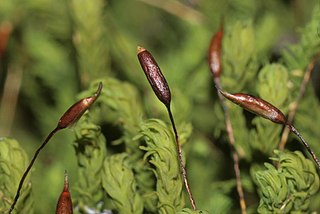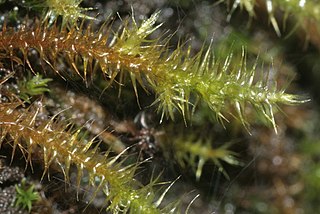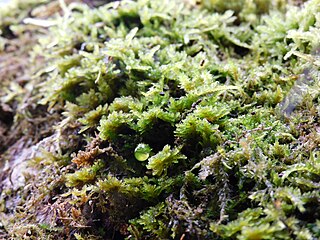
Chenopodium album is a fast-growing annual plant in the flowering plant family Amaranthaceae. Though cultivated in some regions, the plant is elsewhere considered a weed. Common names include lamb's quarters, melde, goosefoot, wild spinach and fat-hen, though the latter two are also applied to other species of the genus Chenopodium, for which reason it is often distinguished as white goosefoot. Chenopodium album is extensively cultivated and consumed in Northern India, and Nepal as a food crop known as bathua.

Triadenum, known as marsh St. John's worts, is a small genus of flowering plants in the family Hypericaceae. The genus is characterized by opposite, blunt-tipped leaves and pink flowers with 9 stamens. They are distributed in North America and eastern Asia.

Armeria maritima, the thrift, sea thrift or sea pink, is a species of flowering plant in the family Plumbaginaceae. It is a compact evergreen perennial which grows in low clumps and sends up long stems that support globes of bright pink flowers. In some cases purple, white or red flowers also occur. It is a popular garden flower and has been distributed worldwide as a garden and cut flower. It does well in gardens designed as xeriscapes or rock gardens. The Latin specific epithet maritima means pertaining to the sea or coastal.

Caldesia is a genus of aquatic plants. It includes three living species widespread across Europe, Asia, Africa and Australia. The genus "has an extensive Oligocene through Pleistocene fossil record in Eurasia," and has been found in fossil strata of the United States as well. Ten fossil species have been described for the genus.
Ulmus davidiana var. davidiana is variety of elm. The tree is restricted to the Chinese provinces of Hebei, Henan, Shaanxi and Shanxi.

Hypnaceae is a large family of moss with broad worldwide occurrence in the class Bryopsida, subclass Bryidae and order Hypnales. Genera include Hypnum, Phyllodon, and Taxiphyllum.

Cypripedium guttatum, the spotted lady's slipper or Alaskan lady's slipper, is a species of orchid found on three continents. Each stem has about two clasping leaves that alternate. The plant has a height of 12 centimeters to 35 centimeters. The magenta and white colored labellum is pitcher shaped.

Corethrogyne is a monotypic genus of flowering plant in the family Asteraceae. Its only species is Corethrogyne filaginifolia, known by the common names common sandaster and California aster.

Streptanthus anceps, synonyms Caulanthus anceps and Guillenia lemmonii, is a species of flowering plant in the family Brassicaceae, known by the common name Lemmon's mustard.

Anomodon is a genus of mosses in the family Thuidiaceae.

Daphne tangutica, syn. Daphne retusa, is a species of flowering plant in the family Thymelaeaceae, native to Tibet, China, and possibly Taiwan. It is an evergreen shrub growing to 1 m tall and wide, with leathery leaves and clusters of fragrant white and pink flowers in spring. The flowers are often followed by red berries. It grows in forests.

Carlina biebersteinii is a purple-flowered herb in the tribe Cardueae of the family Asteraceae. It is found in Europe, Russia, Kazakhstan and in the Xinjiang region of China. It grows in dry meadows and thickets.

Chrysosplenium wrightii, or Wright's golden saxifrage, is a plant species native to northwestern North America and northeastern Asia. It grows on tundra and along stream banks at elevations up to 2300 m in British Columbia, Yukon, Alaska, the Kamchatka Peninsula in Russia, and in eastern Siberia. The plant was first described in 1878 as being from Japan. This was based on material collected along the Sea of Okhotsk presumably either Sakhalin Island or one of the Kuril Islands, parts of Japan at the time but now in the Russian Federation.

Arabis caucasica is a species of flowering plant in the mustard family (Brassicaceae) known by the common names garden arabis, mountain rock cress or Caucasian rockcress.

Amblystegiaceae is a family of mosses. It includes 20 to 30 genera with a total of up to 150 species. They occur nearly worldwide, growing in tropical, temperate, and subpolar regions.

Taxiphyllum is a genus of mosses in the family Hypnaceae.

Kindbergia is a genus of mosses belonging to the family Brachytheciaceae.

Leskeaceae is a family of mosses belonging to the order Hypnales.

Leptodontaceae is a family of mosses belonging to the order Hypnales. There are 3 genera with a worldwide distribution.

Leptopetalum biflorum, synonym Hedyotis biflora, is a species of flowering plant in the family Rubiaceae.



















